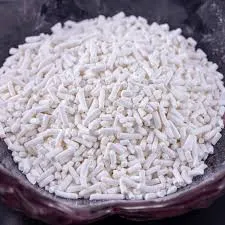
solvents
The Role of Solvents in Chemistry and Industry
Solvents play a crucial role in both chemistry and various industrial processes. They are substances that dissolve a solute, resulting in a solution. Solvents are essential in laboratories, manufacturing, and everyday products, facilitating reactions, extraction processes, and the delivery of active ingredients. Understanding the nature and functionality of solvents can significantly enhance our appreciation of their importance in both scientific and industrial contexts.
Types of Solvents
Solvents can be classified into different categories based on their origin and properties. Broadly, they can be divided into two main categories polar and non-polar solvents.
1. Polar Solvents These solvents have a significant dipole moment due to the presence of highly electronegative atoms, leading to a separation of electrical charges. Water, ethanol, and acetone are common examples of polar solvents. Their ability to dissolve ionic compounds and polar molecules makes them indispensable in chemical reactions, particularly in biological systems and pharmaceutical formulations.
2. Non-Polar Solvents Non-polar solvents, on the other hand, lack a significant dipole moment and do not readily dissolve ionic compounds. Instead, they are ideal for dissolving non-polar substances such as oils and fats. Hexane, benzene, and toluene are examples of non-polar solvents commonly used in organic chemistry and industrial applications.
Furthermore, solvents can be classified as organic or inorganic. Organic solvents, derived from living matter, typically contain carbon atoms and include compounds like ethanol and acetone; inorganic solvents, such as water and ammonia, do not contain carbon.
Applications of Solvents
The versatility of solvents makes them vital in a myriad of applications
1. Chemical Reactions In organic chemistry, solvents can influence the rate and outcome of reactions. They facilitate the mixing of reactants and can stabilize transition states, leading to higher yields. Therefore, the choice of solvent is often a critical factor in reaction optimization.
solvents

2. Extraction Processes Solvents are used extensively in extraction processes to separate compounds from mixtures. For example, in the pharmaceutical industry, solvents help extract active ingredients from plant materials, enhancing the efficiency of drug development.
3. Cleaning Agents Many household and industrial cleaning agents are solvent-based. They dissolve grease and grime, making it easier to clean surfaces. Substances like isopropyl alcohol and acetone are frequently employed due to their efficiency at dissolving unwanted residues.
4. Cosmetics and Personal Care Products Solvents are fundamental in the formulation of cosmetics and personal care items. They help dissolve active ingredients, ensuring uniform distribution in products such as lotions and creams.
5. Manufacturing Processes In industrial manufacturing, solvents play a significant role in the production of paints, coatings, and adhesives. They are used to adjust the viscosity of materials, aiding in application and performance.
Environmental Considerations
Despite their numerous benefits, solvents can pose environmental and health risks. Many traditional solvents are volatile organic compounds (VOCs) that can contribute to air pollution and have adverse health effects. As a result, there is an increasing push towards the development of greener alternatives, including bio-based solvents derived from renewable resources.
Furthermore, regulations and guidelines are being established to limit the use of harmful solvents. The push for sustainable chemistry emphasizes safer, less toxic solvents and encourages the implementation of solvent-free processes whenever possible.
Conclusion
Solvents are indispensable in the realms of chemistry and industry, influencing a wide range of processes from chemical reactions to product formulations. By understanding their properties, applications, and potential environmental impacts, researchers and industry professionals can make more informed choices. The ongoing quest for sustainable alternatives highlights the need for innovation in solvent use, ensuring that the benefits of these substances can be enjoyed without compromising environmental and human health. As we continue to explore new frontiers in chemistry and industrial applications, the role of solvents will undoubtedly remain a focal point in driving advancements while maintaining ecological integrity.
-
Pure Sodium Dichloroisocyanurate Dihydrate | Powerful DisinfectantNewsAug.29,2025
-
Industrial Chemicals: Quality & Purity for Every IndustryNewsAug.28,2025
-
Nitrile Rubber Honoring Strict Production StandardsNewsAug.22,2025
-
Aspartame Ingredients Honoring Food Safety ValuesNewsAug.22,2025
-
Fertilizer for Balanced Plant NutritionNewsAug.22,2025
-
Cyanide Gold Processing with High Purity AdditivesNewsAug.22,2025
-
Formic Acid in Textile Dyeing ApplicationsNewsAug.22,2025
Hebei Tenger Chemical Technology Co., Ltd. focuses on the chemical industry and is committed to the export service of chemical raw materials.
-

view more DiethanolisopropanolamineIn the ever-growing field of chemical solutions, diethanolisopropanolamine (DEIPA) stands out as a versatile and important compound. Due to its unique chemical structure and properties, DEIPA is of interest to various industries including construction, personal care, and agriculture. -

view more TriisopropanolamineTriisopropanolamine (TIPA) alkanol amine substance, is a kind of alcohol amine compound with amino and alcohol hydroxyl, and because of its molecules contains both amino and hydroxyl. -

view more Tetramethyl Thiuram DisulfideTetramethyl thiuram disulfide, also known as TMTD, is a white to light-yellow powder with a distinct sulfur-like odor. It is soluble in organic solvents such as benzene, acetone, and ethyl acetate, making it highly versatile for use in different formulations. TMTD is known for its excellent vulcanization acceleration properties, which makes it a key ingredient in the production of rubber products. Additionally, it acts as an effective fungicide and bactericide, making it valuable in agricultural applications. Its high purity and stability ensure consistent performance, making it a preferred choice for manufacturers across various industries.





